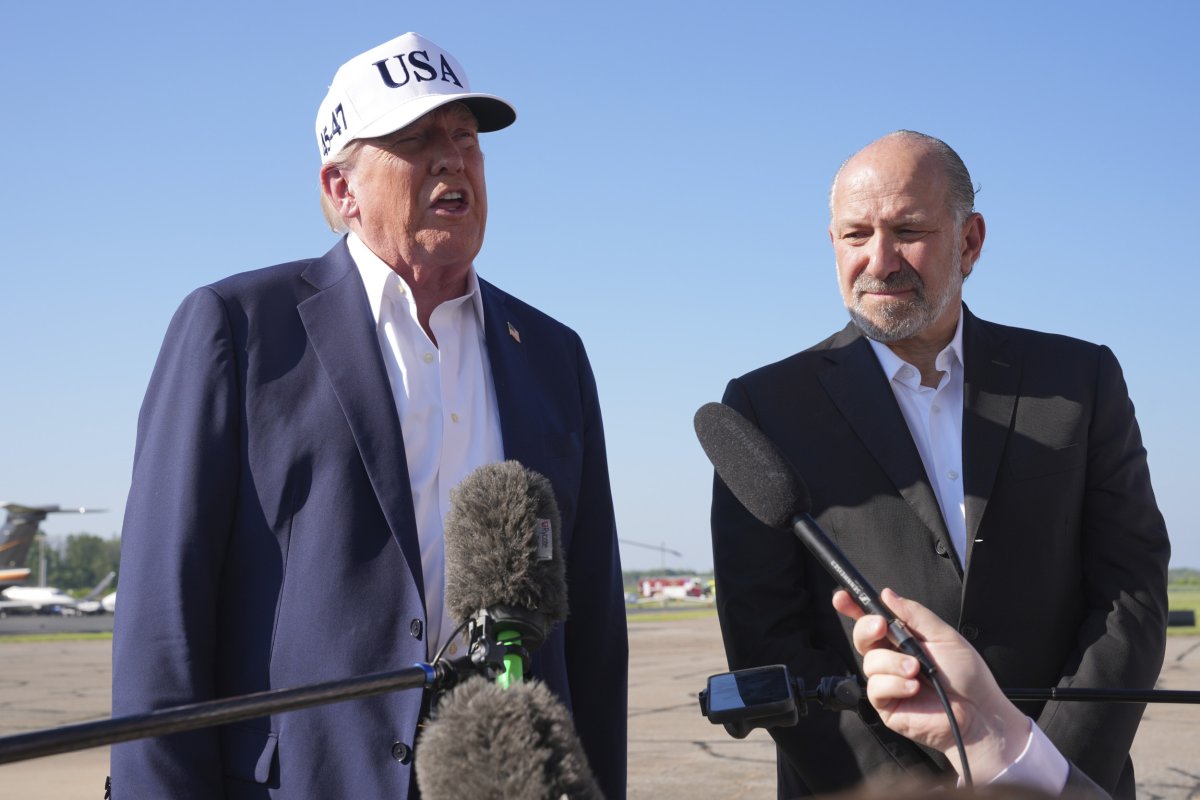The United States is tightening restrictions on foreign chipmakers in China, revoking special authorizations that had allowed South Korea’s Samsung and SK Hynix to access American semiconductor manufacturing equipment.
The move ends exemptions the Commerce Department granted in 2022 when it imposed sweeping limits on U.S. technology sales to China. Without those authorizations, the companies will now need licenses to obtain U.S. equipment for their Chinese operations. Intel also appeared on the list of firms losing authorization, though it sold its Dalian facility in China earlier this year.

Associated Press
Why It Matters
The decision follows months of speculation. In June, a White House official said the administration was preparing for the possibility of revoking the authorizations if trade negotiations with China collapsed. Currently, both countries are operating under a tariff truce, with 30 percent U.S. tariffs on Chinese goods and 10 percent duties on American exports set to remain in place until November. The years-long trade war has already disrupted supply chains, from rare earth minerals critical to U.S. industries to soybean exports to China.
What To Know
The Commerce Department said it would approve licenses to ensure companies can continue operating existing facilities but will not authorize expansions or technology upgrades. That shift could have significant implications for U.S. equipment suppliers, including KLA Corp., Lam Research and Applied Materials, which are likely to see reduced sales to China.
On the day of the announcement, shares of Lam fell 4 percent, Applied Materials dropped 2.8 percent and KLA slipped 2.4 percent.
Thousands of license applications by U.S. companies to export goods and technology to China remain backlogged, according to Reuters, including billions of dollars in semiconductor equipment sales. The revocations will not take effect for 120 days, giving companies time to adjust.
Samsung and SK Hynix previously benefited from what’s known as Validated End User status, which allowed U.S. suppliers to ship equipment to them more quickly and reliably. That designation will now be revoked, bringing the companies under the same licensing rules as other foreign firms.
Neither Samsung nor SK Hynix have commented on the announcement as of Friday night.
Meanwhile, in July, the two countries announced a tariff deal, but South Korean President Lee Jae Myung left his summit with U.S. President Donald Trump this week without putting the agreement in writing.
Last week, it was announced that chipmaker Intel will give the U.S. government a 10% stake in the company, an agreement he said followed a meeting last week with CEO Lip-Bu Tan — just days after Trump had called for Tan’s resignation over his past ties to China.
What People Are Saying
Chris Miller, author of “Chip War,” told Reuters, “This move will make it harder for Korean chipmakers with facilities in China to continue producing more advanced chips. If this isn’t accompanied by further steps against (Chinese chipmakers like) YMTC and CXMT, it risks opening market space for Chinese firms at the expense of the Korean firms.”
Lip-Bu Tan, CEO of Intel, said in Friday’s statement, “As the only semiconductor company that does leading-edge logic R&D and manufacturing in the U.S., Intel is deeply committed to ensuring the world’s most advanced technologies are American made. President Trump’s focus on U.S. chip manufacturing is driving historic investments in a vital industry that is integral to the country’s economic and national security. We are grateful for the confidence the President and the Administration have placed in Intel, and we look forward to working to advance U.S. technology and manufacturing leadership.”
What Happens Next
The shift could bolster domestic Chinese equipment manufacturers, which may step in to fill gaps created by the restrictions. It may also aid U.S. memory chipmaker Micron, a direct competitor to Samsung and SK Hynix, in the global semiconductor market.
Update: 8/29/25, 7:12 p.m. ET: This article was updated with new information and remarks. This headline was updated for clarity.